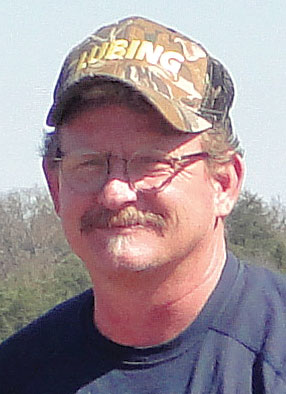
For Johnny and Bridget Pruitt of Ozark, Ark., three elements intertwine to create their happy and very busy lives. These are God, a tight knit family and a diversified income.
Johnny purchased their 125 acres outside of Ozark in 2004 and rents an additional 70 acres for haying. When purchased, the land was raw with only perimeter fencing. Since then he and his family have built the home they now share nine children and 12 grandchildren. They have added a barn, four turkey houses, four wells, a shop, additional fencing, a cattle pen, and plan for further growth.
“My dad told me the only person that messes up is the one that doesn’t do anything,” Johnny said.
The first income stream is derived from a commercial cow/calf operation. The herd currently contains 30 Angus/Brangus cows bred by two pureblood, but not registered, bulls.
“You can’t breed those papers,” Johnny said.
Because his herd is in the building stage, he retains 25 percent of his heifers for 15 months before breeding, and he changes bulls every two years to keep the bloodlines separate.
Johnny is a man who keeps his eyes open for opportunity and may buy a bull from a local online ad or through the stockyards. At the moment, however, he is considering trading bulls with a neighbor.
The bulls run with the herd year round, with calves being sold at an average of 500 pounds. He uses an injectable dewormer and a pour-on for lice and flies twice a year. Lick tubs are used as a protein supplement year-round as well as a feed mix with mineral and salt.
The herd receives hay harvested on their land and fertilized with turkey litter from their houses according to their annual nutrient management plan with Natural Resource Conservation Service. A cow is culled if she can’t keep weight on, has poor teeth or an injury. If a cow is older and skips one cycle, she is culled. If younger, the cow is allowed to skip two cycles before being culled.
The second stream of income comes from the four Butterball Turkey houses built in 2007 with payout in 15 years.
The chicks arrive at a day old and stay for 12 weeks, reaching 15 pounds. The poults begin with a crumble and transition to a pellet feed because the conversion rate is better.
One flock consists of 48,000 to 50,000 birds. They brood in the two middle houses for five or six weeks, then one half of each house is moved to the house next to it through a permanent structure with the family using flags to move them along. The curtains are computerized with lowering and raising based on temperature. The operation is looking to update by adding infrared heating and adult nipple drinkers instead of plasson drinkers.
“Our biggest challenge is in biosecurity,” Johnny said. “We follow all the standard procedures, including water stations with disinfectants at each house, disinfecting in and around houses, as well as severely limiting traffic. We felt we needed to do an even better job in terms of traffic and came across an important composting system.”
Johnny and Bridget felt the trucks coming to pick up deceased birds could bring problems from other farms. The Pruitts investigated and found a Canadian company with a plastic composting drum. Because the drum is made of plastic, corrosion is not an issue and the lighter weight makes it more economical than its metal counterparts.
The process is simple and efficient. Every day equal parts of a carbon source, such as wood shavings, and dead birds are put into the composter which has a computer controlled box scheduled for rotation based on mortality input. An exhaust fan runs every hour to induce oxygen to feed the microorganisms and speed the decomposition. The Ecodrum produces with every rotation a very usable soil building product.
“We loved this particular composting drum so much we considered becoming a distributor, but a business needs to be thoroughly investigated before investing,” Johnny said.
Their investigation revealed the product was originally designed for swine but transitioned well into the poultry industry. They recognized the benefits to other growers after receiving and putting their composter into operation. Further questioning revealed that the NRCS is now backing this composter with grant funding. They now assist other growers in finding a solution to these management practices on their farms and connecting them with those that can provide financial assistance. Because Johnny and Bridget believed a plastic composter is at the forefront of technology improvement in the poultry industry, they now have a sales distributor and service business in four states with expansion continuing.
“The personal customer service side of our Hindsite Solutions is the backbone of what we do,” Bridget said. “Our service includes helping customers offload, install, and train on the composters as a courtesy rather than a serviceable charge. Our customers know we are cut from the same cloth and walk the same walk.”
Pruitt diversity, growth, and commitment have led to the inclusion of many family members. Bridget said, “To be there for each other in a time of crisis, you need to be able to build unity and trust together in times of sharing and fun.” To this end the extended family has a monthly potluck with as many as 75 people. Favorite activities include shooting water balloons from the lower branches of trees, homemade slip and slides during the summer, and everyone, including all adults, dressing up for Halloween where a very good time is mixed with lots and lots of additional games and laughter.







